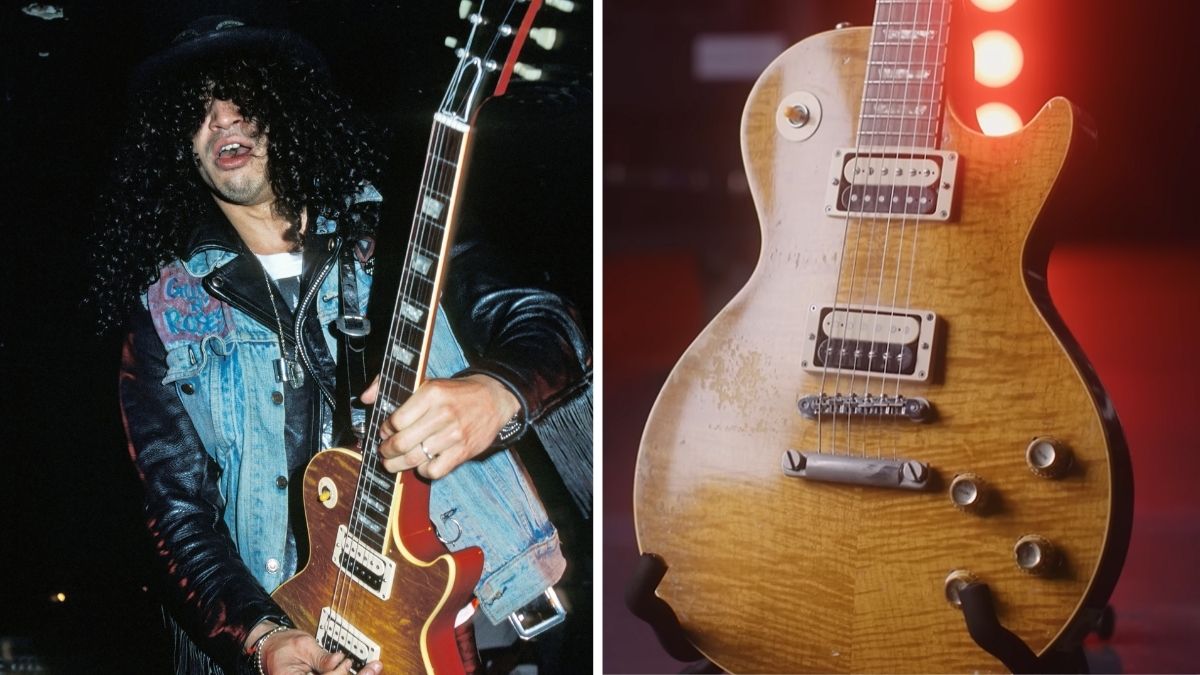“I don’t go in with an idea of what guitar I want to use. One will call out to me, saying, ‘OK, it’s my turn.’ It leads to something that comes explicitly from that instrument”: Art rock icon Bill Nelson has 80 guitars, but he ditched amps a long time ago
The creative drive of Be Bop Deluxe’s avant-garde guitar hero cannot be stopped. Nelson releases multiple albums a year and still prizes his ’60s Gibson ES-345 – although he wanted a Gretsch at first, until his dad intervened…
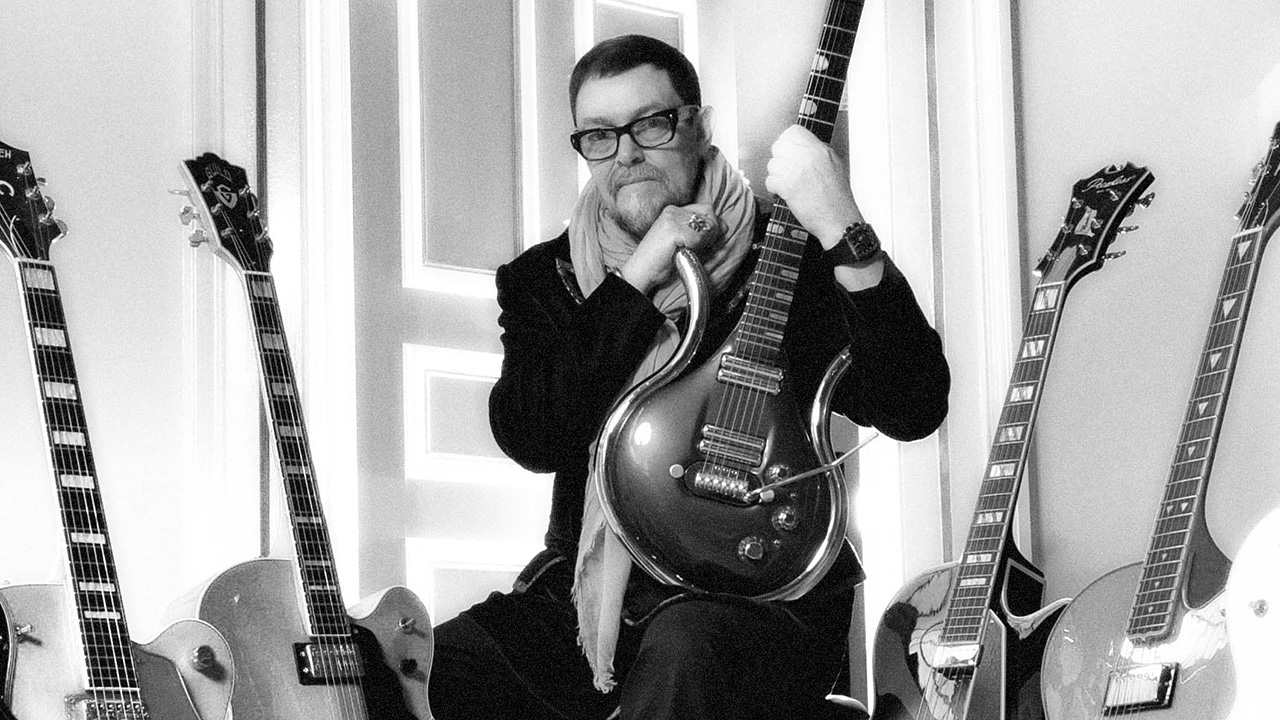
All the latest guitar news, interviews, lessons, reviews, deals and more, direct to your inbox!
You are now subscribed
Your newsletter sign-up was successful
With his group Be Bop Deluxe, Wakefield, UK-born guitarist Bill Nelson merged the worlds of glam, art, and experimental rock, creating a six-string concoction all set to boil over.
For the uninitiated, guitar-forward albums like Axe Victim (1974), Futurama (1975), Sunburst Finish (1976), Modern Music (1976) and Drastic Plastic (1978) represent some of the tastiest yet off-kilter shred heroics of the ‘70s. And if Nelson had stopped there, the cult following he’d gained through those records would have carried his legacy for a lifetime.
But Nelson wasn’t meant to stagnate. Instead, he disbanded Be Bop Deluxe and embarked on a solo journey featuring dozens of records. His creativity is such that he often drops several albums in a year, and 2023 leading into 2024 will be no exception. “I’ve got the Be Bop Deluxe and Bill Nelson’s Red Noise reissues, and I’ve got an album called Starlight Stories [on sale now], and then I’ve got a three-volume set coming after that,” Nelson explains.
“The three-volume thing is a set of instrumentals called Guitars of Tomorrow. I’ve got lots of material recorded already, so the task is to sort through it, put it into album form, and decide what order the tracks will be in for each volume.”
He maintains that the order in which listeners hear the tracks is essential: “It’s quite the task. I still believe in an album being heard as one piece. It must be cohesive. So there needs to be a starting and end point.
“I don’t spend all this time and thought on the music and the programming only to give no thought to the order; the music I make might change, but that’s certainly something that will never change, no matter what I’m working on.”
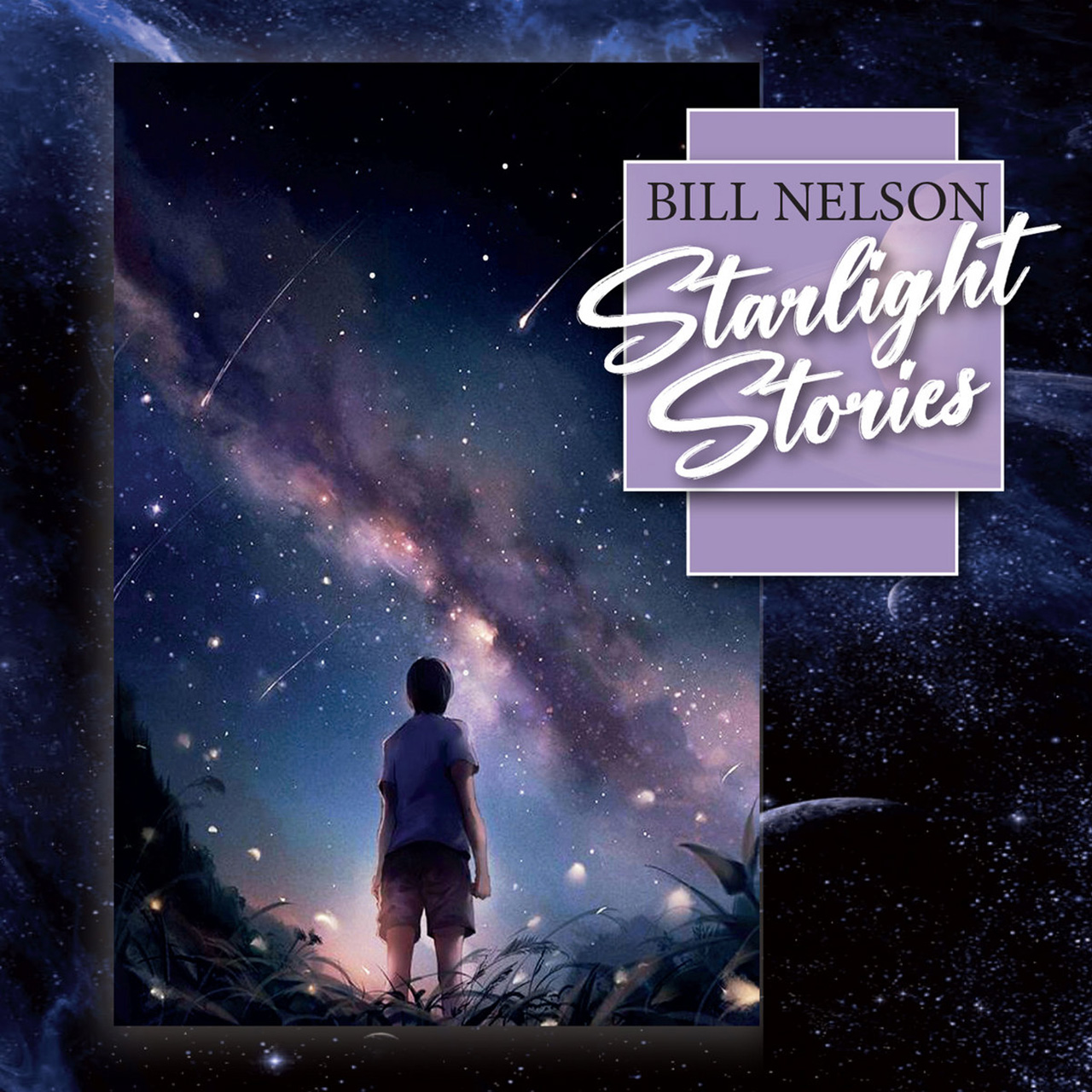
How do you view the guitar within the context of your prolific writing?
All the latest guitar news, interviews, lessons, reviews, deals and more, direct to your inbox!
“When I started, I learned by listening to the records I liked and trying to figure out the notes. But as time has passed, I’ve kept an open-minded approach to playing. I play entirely intuitively. I rarely sit down and work out a solo; I just run the track and improvise off the top of my head. But once that’s constructed I can make a framework, and the rest goes on top of the guitars.”
What nuances within your playing do you feel are important but maybe the average listener wouldn’t pick up on?
I use the EBow a lot, which can sometimes sound like a synthesizer… people might not always pick up that it’s a guitar
“That’s hard to say! I would think that, for instance, I use the EBow a lot, which can sometimes sound like a synthesizer. I think people might not always pick up that it’s a guitar. I like it because it has these long, sustained lines. It’s definitely a hallmark of what I do.”
Another hallmark is your rich tone. What’s your secret?
“I haven’t used a real amplifier for years and years. I was one of the first adopters of processors way back when. I don’t know if anyone will remember, but there was a small device called a Zoom G1X, around the size of a Sony Walkman. You could mount it to a guitar strap.
“It was a great digital processor because it allowed me to get rid of bulky equipment. I still use it today, but I’ve also got a DigiTech Valve FX rack-mounted processor. That aside, I have maybe 10 real amps – but I rarely use them.”
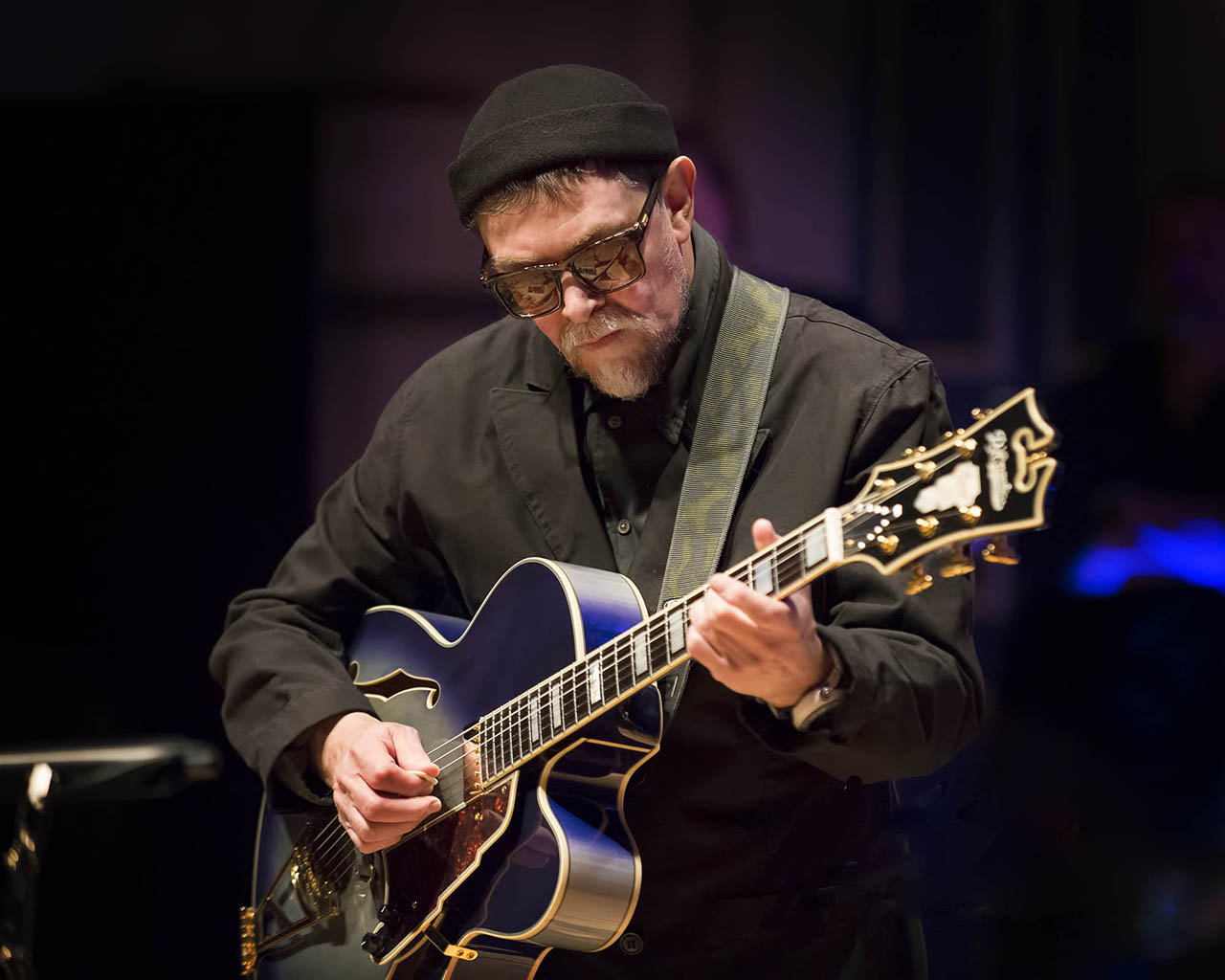
Has using processors altered your sound compared to your Be Bop Deluxe days, when I assume you leaned on tube amps?
“No, not due to that. If you’ve played for a long time, your sound will evolve. Tone evolves, as do other aspects. One example of the amps versus processors thing came a few years ago while I was working on mixes for a reissue of Be Bop Deluxe’s Live! In the Air Age. There’s a track called Modern Music, and the live recording had a flaw in the guitar intro.
“I had to replace five bars of guitar in the middle of the introduction to the song, and I was in the studio but I had no amp with me. There was a little Line 6 unit and a budget Epiphone ES-345. So I dialed up the sound on the Line 6 POD, found the sound and fixed the flaws. And once I was done, you couldn’t tell the difference. So having an amp is not always essential – even if you’re fixing something that did.”
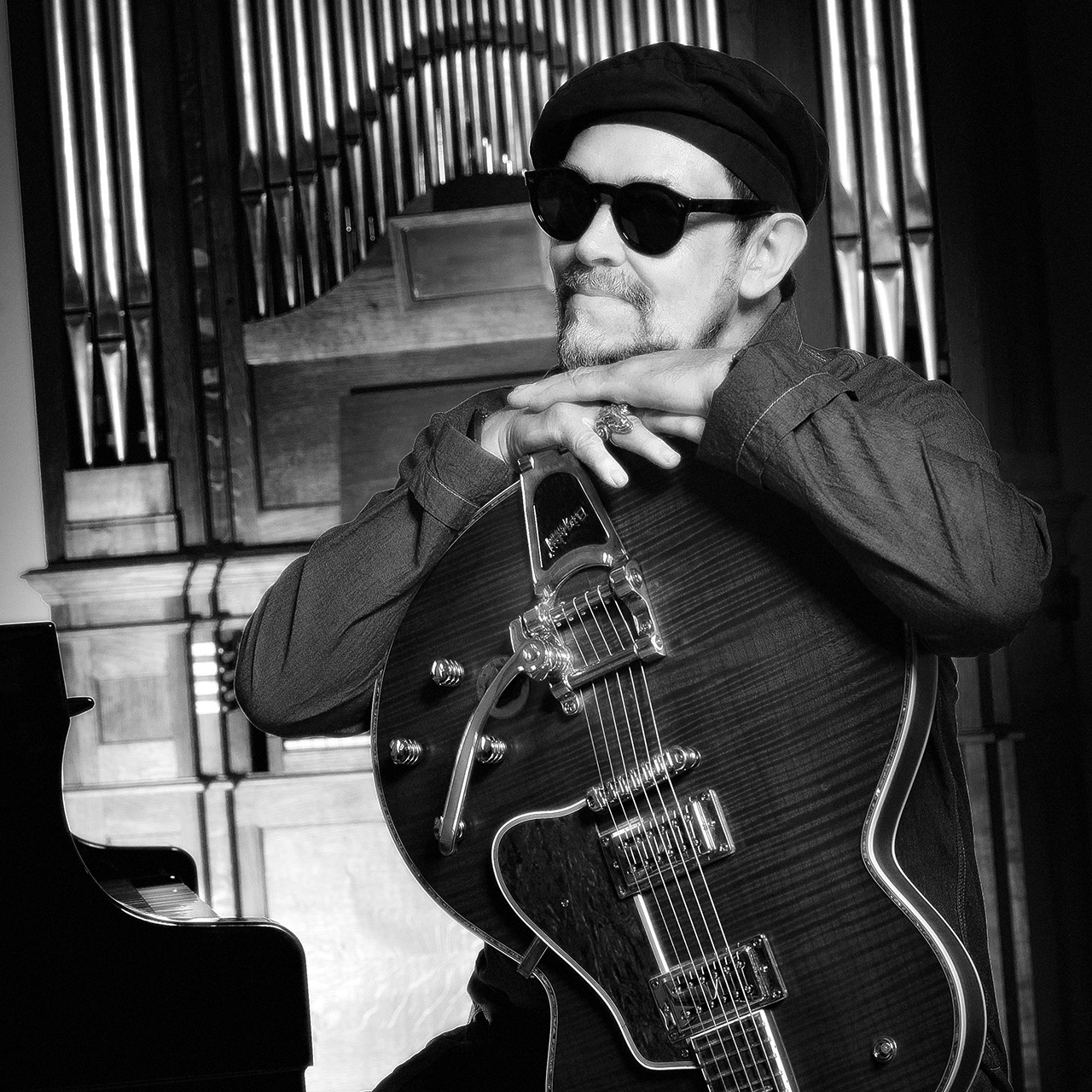
You’re an avid guitar collector. Is there one that means the most to you?
“The most precious guitar I own is my early ’60s Gibson ES-345, the one my father bought for me as a teenager. I’ve played it all through the Be Bop Deluxe days and beyond. It’s been through some wars, and I had it refinished at one point, but it’s got an incredible history and means a lot to me.
“But I’ve recently purchased a white double-cutaway Gretsch Falcon, which is a remake of the one from 1962. Only 15 were made for the European market and I snagged one.
”I’ve got around 80 guitars. I’ve just put around half a dozen in the studio. I’ll play them for a couple of months, use some of them to record, and then put them away for new ones. I like to use my guitars rather than keep them stored away as collector’s pieces.”
I’ve just put around half a dozen guitars in the studio. I’ll play them for a couple of months, use some of them to record, and then put them away for new ones
Going back to the ES-345 your father purchased, is there a story behind that guitar?
“When my dad bought me the guitar he wasn’t looking for a Gibson because I initially wanted a Gretsch. I was a big fan of Chet Atkins and wanted a Country Gentleman, but the guitar shop in Leeds, near my hometown of Wakefield, didn’t have one. My father told the shop owner, ‘My son would like a Gretch Country Gentleman. Could you get one in?’
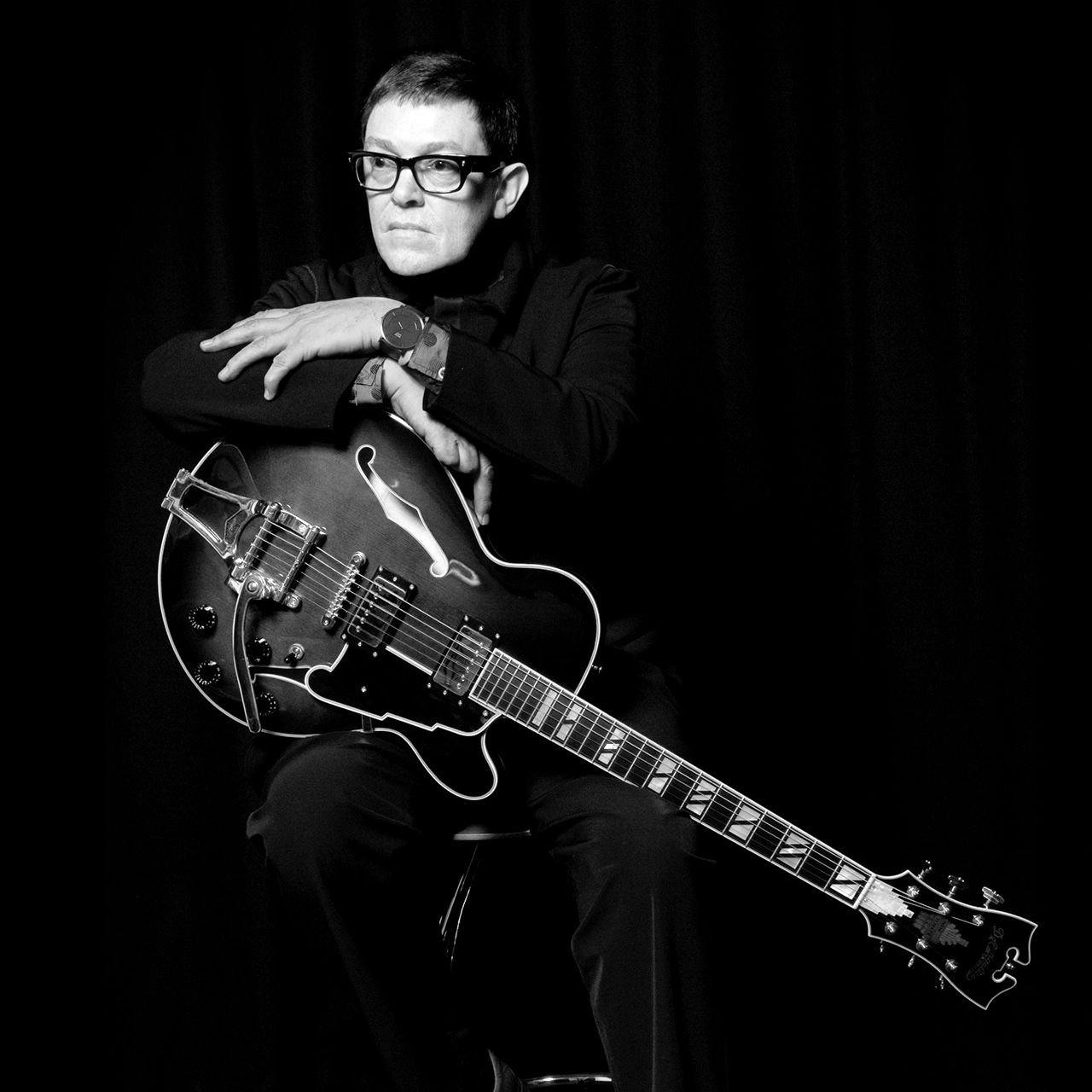
“The shop owner said, ‘We’d have to order one from China,’ which would have taken a long time. But my father knew Gibson made good guitars. We’d seen bands play them in seaside venues while on holiday, specifically an ES-345, so my dad told me, ‘That's the guitar you should get.’ I was skeptical because I desperately wanted a Gretsch, but I tried the ES-345 out, and after playing it, I was thrilled.”
It just felt right, then?
“I ended up trying both the Country Gentleman and the ES-345 out, and after playing the ES-345 I was thrilled. It felt substantial and beautifully laid out. I changed my mind right then and there because it played like butter.”
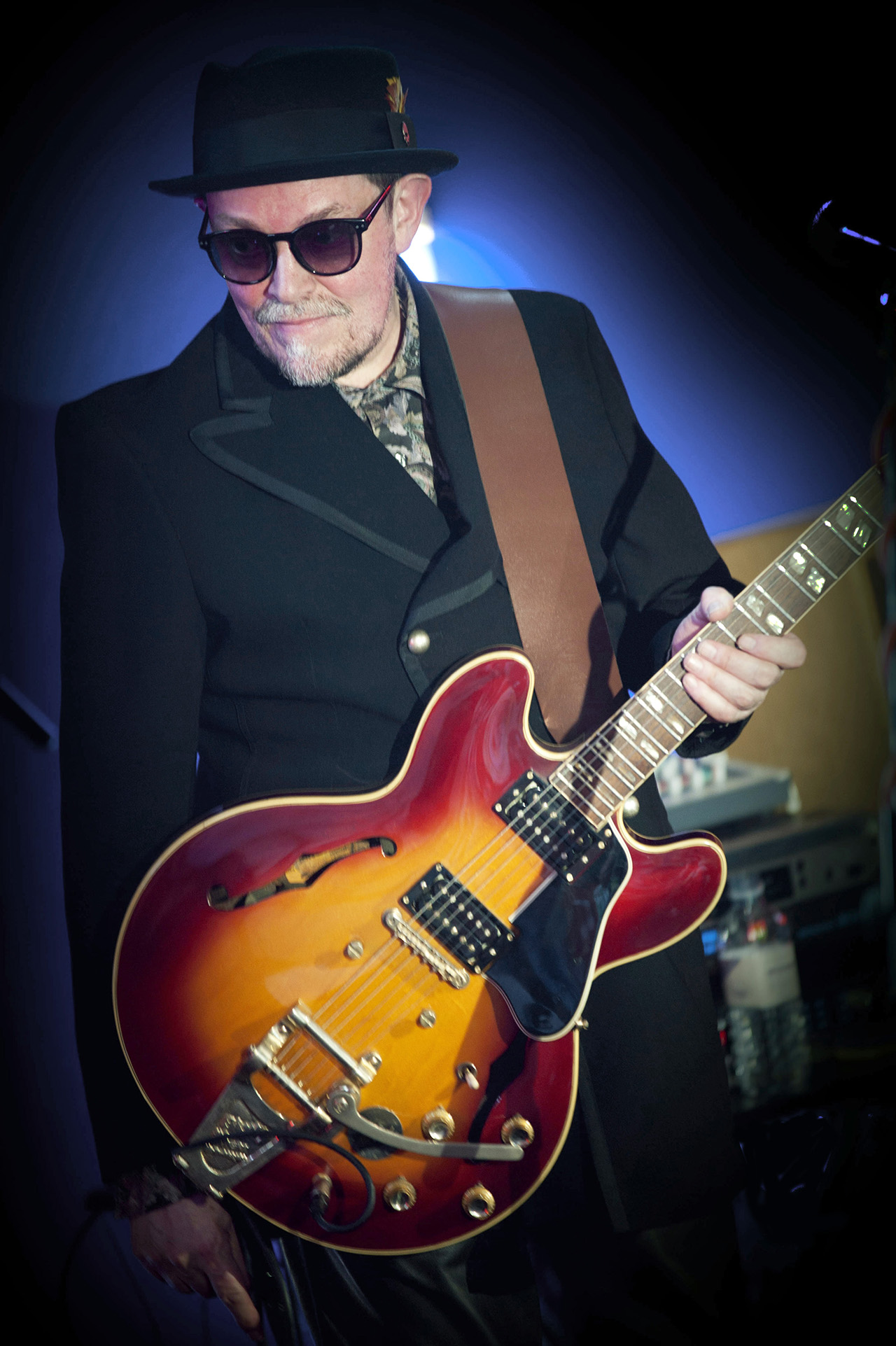
With all those guitars in the studio, how do you decide which to use?
“I don’t necessarily go in with an idea of what sound I want or what I want to use. And what I have in the studio varies too. I won’t always have solidbody guitars, or maybe I’ll mix them with archtops or acoustics. It comes down to what speaks to me. One will call out to me, saying, ‘Okay, it’s my turn,’ and I’ll pick it up, leading to something that comes explicitly from that instrument. And then, for overdubs, I’ll use a different guitar, creating contrast.”
You’ve got such an extensive catalog, but if you had to pick an album that you're most proud of, what would it be?
I’m proud of the Be Bop Deluxe stuff, but I don’t desire to replicate it… It had its place and time, but that was over 40 years ago, you know?
“It probably wouldn’t be one thing – it’s probably a few things. I do tend to err toward things from the last 10 years, and one I’m very fond of is The Alchemical Adventures of Sailor Bill from 2005. In terms of the songwriting, production, and arrangements, that album is at the top end for me.”
Do you still relate to your early work with Be Bop Deluxe?
“Because it was so long ago, it almost seems to be the product of a different person – a younger person who didn’t know quite enough yet. I’m proud of that stuff, but I don’t desire to replicate it or return to that form of music. It had its place and time, but that was over 40 years ago, you know? Times change, as do people. You must keep moving and pushing forward.”
- Starlight Stories is out now via Burning Shed.
Andrew Daly is an iced-coffee-addicted, oddball Telecaster-playing, alfredo pasta-loving journalist from Long Island, NY, who, in addition to being a contributing writer for Guitar World, scribes for Bass Player, Guitar Player, Guitarist, and MusicRadar. Andrew has interviewed favorites like Ace Frehley, Johnny Marr, Vito Bratta, Bruce Kulick, Joe Perry, Brad Whitford, Tom Morello, Rich Robinson, and Paul Stanley, while his all-time favorite (rhythm player), Keith Richards, continues to elude him.

